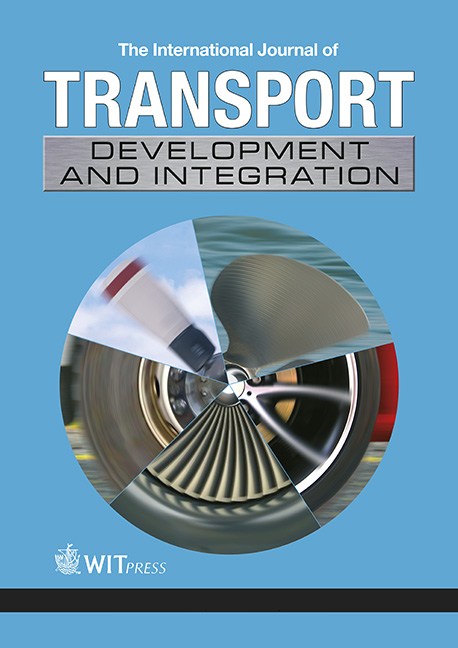LIFECYCLE VS ELEMENT COSTS: A NEW APPROACH TO OPTIMIZE THE POWER SUPPLY SYSTEM DESIGN IN RAILWAYS INFRASTRUCTURES
Price
Free (open access)
Volume
Volume 1 (2017), Issue 3
Pages
9
Page Range
481 - 490
Paper DOI
10.2495/TDI-V1-N3-481-490
Copyright
WIT Press
Author(s)
M. SOLER, J. LÓPEZ, J.M. MERA & J. MAROTO
Abstract
Electrification systems applied to railway systems have high complexity to achieve the optimum in several terms. These terms could be separated in energy supply and budget costs, such as direct and indirect costs, all of them derived from the implantation of the electrification system along the railway line. Starting from the experience in several projects carried out in CITEF (Railway Research Center in Technical University of Madrid), a new research way has grown up. The main goal has been an expert system, which is able to improve substantially the design process of power supply systems in railways, such as in AC as DC. Bearing in mind the specific constraints in terms of budget and electric standards, the expert system is able to determine a set of possible design scenarios. Each of them has the number, type and location for the main elements (catenary, substation, autotransformer, etc.). In this article a step forward is presented. This new step would apply a better way to choose between elements, hence taking into account the relationship between lifecycle versus element cost or losses avoided in the infrastructure. This has been applied to the main elements like traction substations, autotransformers, catenary and impact on maintenance and environmental zones. This new concept for evaluation has been integrated in the objective functions. These functions are the managers for the guidance of the optimization method, in this case genetic algorithm AMGA-II, in order to achieve the final Pareto Front. This Pareto Front contains the several possibilities which the designers must evaluate to accomplish their goals to power supply system.
Keywords
AMGA-II, life-cycle costs (LCC), maintenance and environmental zones, optimization, power supply design (PSD)




